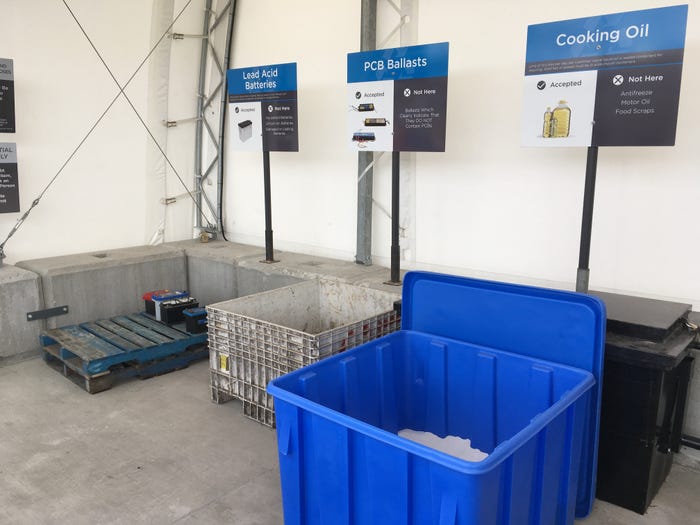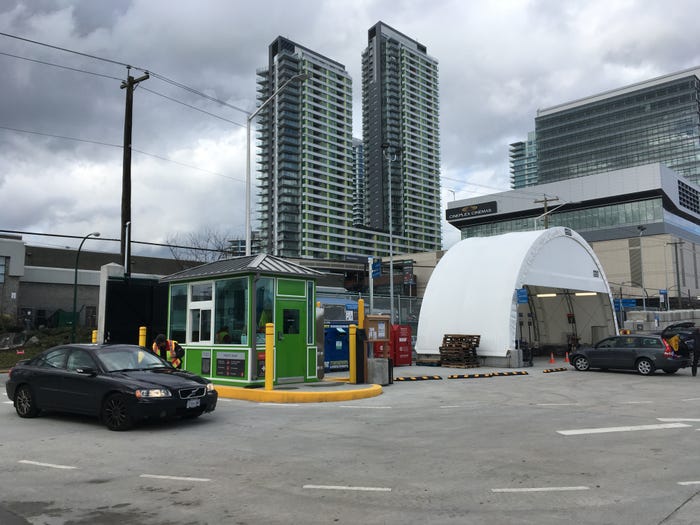Vancouver, Canada, Invests in Zero Waste Plan with New Facility
The new Zero Waste Centre replaces a smaller recycling center that took fewer materials.

Vancouver, British Columbia, Canada’s Zero Waste Centre, which opened in February, is part of the city’s new plan to achieve zero waste by 2040. The C$2 million facility, located at 8588 Yukon Street, replaces the Recycling Depot that had been located at the Vancouver South Transfer Station.
“Vancouver is leading Canadian cities in going green, and that includes the efforts of many Vancouverites to recycle,” says Mayor Gregor Robertson. “Our Zero Waste Centre will help us become the world’s greenest city by making it easier—and in many cases, free—for residents to do their part and recycle or reuse more materials than ever before.”
The Zero Waste Centre replaces a smaller recycling center that took fewer materials. The new facility accepts materials including bicycles, books, cardboard, cell phones, textiles, cooking oil, electronics, glass bottles and jars, foam packaging, household batteries, large and small appliances, lead acid car and truck batteries, plastic bags and overwrap, paper, propane tanks and scrap metal.
“[The Zero Waste Centre] allows us to do a lot of new and innovative things,” says Albert Shamess, director of waste management and resource recovery for the city of Vancouver. “It gives us a lot more flexibility, a lot more space and the ability to increase what we can recover.”
From Salvation Army to local bike repair shops, community partnerships with local organizations are helping to close the loop by recovering and reusing collected materials.

“[Success] is in the amount of material we collect, and the number of different types of materials we can recover,” says Shamess. “As we expand, we are seeing more recovery and more diversion from the landfill, and that becomes our measure of success. The other part is our community involvement and community awareness.”
Ongoing efforts to educate the community about the Zero Waste Centre and what materials to bring, as well as helpful onsite staff who can help residents to easily use the facility, have been key to the centre’s launch.
Being thoughtful about community participation plays into Vancouver’s larger zero waste strategy. Earlier this year, Vancouver released a draft of Zero Waste 2040, a strategic plan that will be used to drive efforts toward a zero waste goal by 2040. A May 16 press release touts Vancouver as being “the first city in the world to approve a comprehensive zero waste strategic plan.”
The process for implementing the city’s zero waste plan includes expanding the opportunities for waste diversion and recycling, while simultaneously evaluating what changes to infrastructure will be needed, as well as identifying technology gaps, and providing robust public education around waste management and diversion issues.
In addition to the Zero Waste Centre, the city has rolled out other initiatives toward the zero waste goal. The Single-Use Item Reduction Strategy includes actions to reduce waste from plastic and paper shopping bags, polystyrene foam cups and take-out containers, disposable hot and cold drink cups and disposable straws and utensils by 2025.

The city, which owns and operates the landfill, continues to evaluate what additional materials can be recovered at the site, says Shamess.
Vancouver also has made new regulations around construction and demolition. “We just went through the process of updating our bylaws so that we are requiring deconstruction of heritage properties,” says Shamess. “We are requiring 75 percent recycling of all properties that are being demolished that were built before 1950, so we are gradually ratcheting up other regulatory tools to increase the amount of diversion we can achieve.
The city of Vancouver is leading the way in a lot of areas, including single-use items and having an actual Zero Waste 2040 plan, says Shamess. “A lot of zero waste plans have been developed in other communities based on achieving 50 percent reduction of waste going to disposal by a certain date. We are saying our goal is to become a zero waste community.”
The plan will continue to evolve as the city progresses toward its goal. “It’s not going to be something that we can solve overnight, and it is not going to be any one thing that can solve the problem,” states Shamess. “It is going to be a multitude of interventions and support mechanisms as well as education and communication.”
About the Author
You May Also Like


.png?width=300&auto=webp&quality=80&disable=upscale)